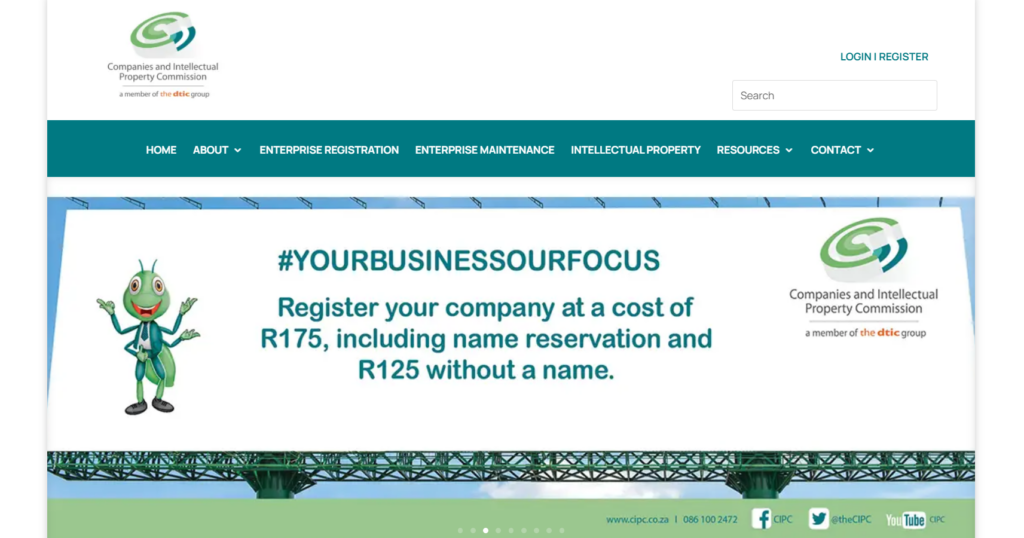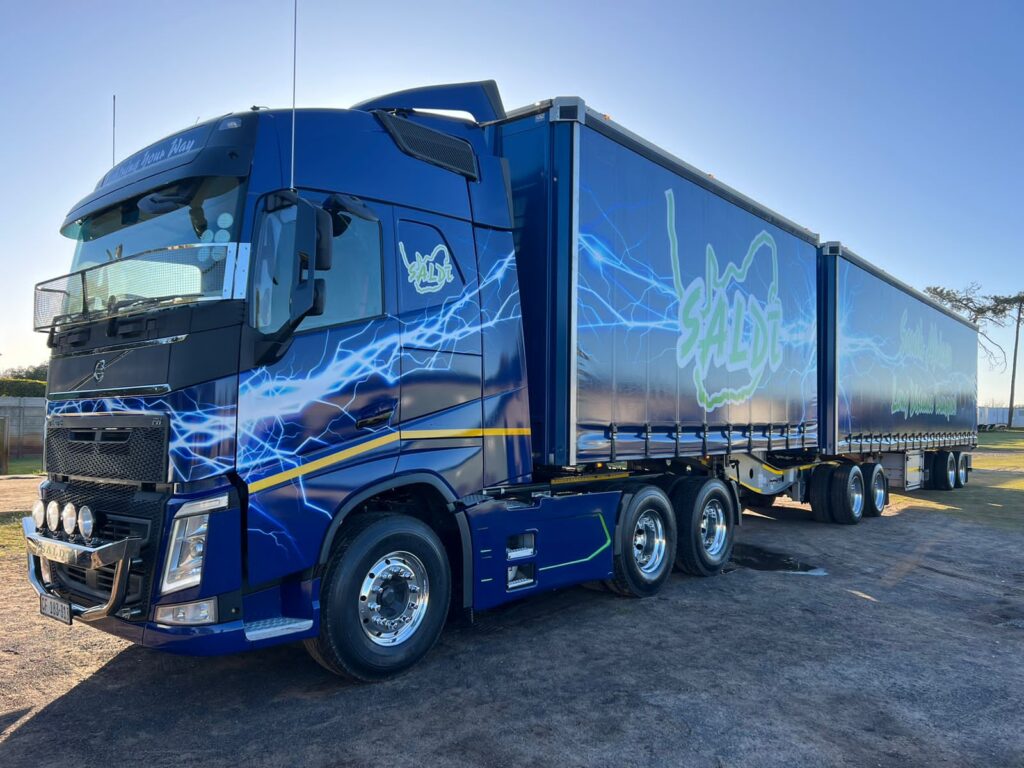Introduction
Trucking business in South Africa is profitable. You need to plan carefully, do strategic execution, and comply with the country’s regulations. This industry promises you financial growth and the opportunity to contribute to the nation’s thriving logistics sector.
With South Africa’s strategic location at the southern tip of Africa, its well-developed infrastructure, and its status as a key player in regional and international trade, the demand for efficient transportation services is on the rise.
To succeed, you need to explore the ins and outs of licensing, permits, and regulatory requirements, while also building a fleet, hiring qualified drivers, and establishing a robust logistics network.
In this guide, you’re going to walk through the step-by-step process of launching a trucking business in South Africa.
Also, you’re going to learn the essential aspects of the business such as business registration, financing options, vehicle acquisition, insurance, and operational management. Nothing can stop you from turning your entrepreneurial vision into a successful and sustainable reality.
1. Research the Trucking Industry and Market Trends
To start a trucking business in South Africa, Before diving in, research and understand the trucking industry landscape. Research current market trends, including demand for freight services, types of goods transported, and the competition in your area.
Analyze how economic factors, such as fuel prices and import/export regulations, impact the industry. Utilize resources like industry reports, government publications, and local trucking associations to gather valuable insights. This knowledge helps you identify opportunities and potential challenges in your business.
2. Develop a Comprehensive Business Plan
To commence a trucking business in South Africa, create a detailed business plan. This document outlines your business objectives, target market, services you offer, and marketing strategy. Include financial projections, such as startup costs, operating expenses, and expected revenue.
A solid business guides your operations and serves as a valuable tool if you seek financing from banks or investors. Make sure to outline your unique selling proposition—what makes your trucking service stand out from the competition in the Country.
3. Register Your Business and Obtain Necessary Licenses

To operate your trucking business legally in South Africa, register it with the Companies and Intellectual Property Commission (CIPC). Choose a suitable business structure, such as a sole proprietorship, partnership, or private company.
After registration, obtain the necessary licenses and permits required for the trucking industry. This includes a freight transport license and vehicle registration. Ensure that you comply with all local, provincial, and national regulations to avoid legal complications.
4. Choose the Right Type of Trucking Services to Offer
To run a trucking business in a less competitive niche in South Africa, choose the right type of trucking services to offer. Common options include long-haul trucking, local delivery services, specialized freight (such as refrigerated goods), and logistics management.
Consider your market research to determine which services are in demand in your area. Tailoring your offerings to meet specific customer needs can help you gain a competitive edge.
Additionally, assess the required equipment and training you need for the type of service you choose.
5. Acquire Reliable Trucks and Equipment
To start a trucking business in South Africa, acquire reliable trucks and equipment. You want to consider factors such as the types of loads you intend to carry, fuel efficiency, and maintenance costs when selecting vehicles.
You can choose to buy new or used trucks, or even consider leasing options to minimize upfront costs. Additionally, ensure that you have the necessary equipment, such as trailers, GPS systems, and safety gear. Regular maintenance of your fleet also enhances reliability and reduces downtime.
6. Set Competitive Pricing Strategies
To kick start a trucking business in South Africa, set a competitive pricing strategy. This aspect is vital for attracting clients while ensuring profitability.
Analyze competitor pricing and evaluate your cost structure to set competitive rates. Consider different pricing models, such as per mile, per load, or monthly contracts. Offering flexible pricing options, discounts for long-term contracts, or value-added services can make your business more appealing.
However, be cautious not to undercut your prices so much that it affects your profit margins.
7. Establish a Strong Online Presence and Marketing Strategy
To run your trucking business seamlessly in South Africa, establish a strong online presence and marketing strategy. Create a professional website showcasing your services, company values, and contact information.
Utilize social media platforms to engage with potential clients and share industry insights. Consider digital marketing strategies such as search engine optimization (SEO) and pay-per-click advertising to increase visibility.
Networking within industry events and joining local business associations can also help build your reputation and attract customers.
8. Hire Skilled Drivers and Support Staff
To launch your trucking business in South Africa, hire skilled drivers and support staff. Your drivers are the backbone of your trucking business. Hire skilled, experienced drivers with valid licenses and a clean driving record.
Consider conducting background checks and providing ongoing training to ensure safety and compliance with regulations.
Additionally, hire support staff to manage logistics, customer service, and administrative tasks. A well-rounded team enhances your operational efficiency and contributes to a positive company culture.
9. Implement Effective Safety and Maintenance Protocols
To manage a trucking business in South Africa, implement effective safety and maintenance protocols. Create a maintenance schedule to ensure that you service your trucks regularly in order to reduce the risk of breakdowns and accidents.
Familiarize yourself and your team with road safety regulations and best practices. Promoting a culture of safety not only protects your employees but also builds trust with clients.
10. Monitor Financial Performance and Adapt Strategies Accordingly
To keep your trucking business profitable in South Africa, monitor financial performance and adapt strategies accordingly. Use accounting software to track income and expenses, and conduct monthly financial reviews to identify trends and areas for improvement.
Adapt your strategies based on your findings, whether it means adjusting your pricing, cutting costs, or exploring new markets. Staying agile and responsive to market changes help your business thrive in a competitive environment.
Recap
Starting a trucking business in South Africa involves several crucial steps: first, conduct thorough research on the trucking industry and market trends to identify opportunities. Next, develop a comprehensive business plan outlining your goals and strategies.
Register your business and obtain the necessary licenses to operate legally. Choose the right type of trucking services to meet market demand, and acquire reliable trucks and equipment tailored to your needs.
Set competitive pricing strategies to attract clients while ensuring profitability, and establish a strong online presence and marketing strategy to promote your services. Hire skilled drivers and support staff to enhance operational efficiency, implement effective safety and maintenance protocols to ensure reliability
Regularly monitor your financial performance to adapt strategies as needed for long-term success.


















